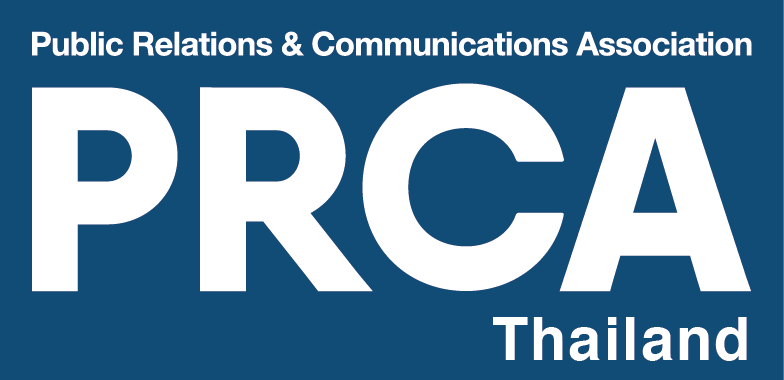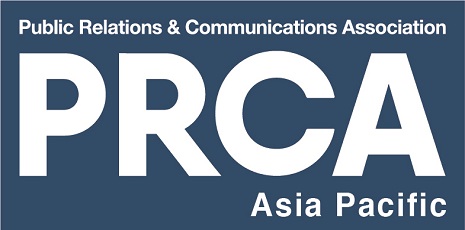
The guidelines are intended to support responsible pitching and procurement of PR and digital consulting services that ultimately benefits both clients and agencies
BANGKOK, AUGUST 25, 2022 – PRCA, Thailand’s leading professional body for the public relations industry, has released a series of guidelines which address common issues with the pitching process and suggest ways to improve them.
The guidelines follow a recent announcement by the Advertising Association of Thailand (AAT), the Digital Advertising Association of Thailand (DAAT), and the Association of Media Agencies and Media Businesses of Thailand (MAAT) where association members must ensure agencies are paid by clients, with a budget of up to 100,000 THB per agency, for comprehensive pitches that include strategy, creative, and execution.
PRCA’s chapter in Thailand currently does not advocate for pitching fees but does call for greater sustainability and efficiency in the procurement process for PR agency services.
“PR agencies invest substantial time and resources in pitching, and it benefits everyone when their efforts are fruitful,” said PRCA Asia Pacific Director Tara Munis. “Our goal is to build more collaborative and sustainable relationships between clients, procurement executives, and PR agency professionals, and to help clients and agencies forge relationships that inspire creativity and deliver positive results. Sustainable relationships require both parties to behave in ways that would be acceptable if they were implemented across the field.”
PR agencies typically invest time in the pitching process through a variety of activities, including but not limited to tender identification, vetting briefs, brainstorming, strategy formulation, planning, tissue sessions, budgeting, the pitch meeting, and answering follow-up inquiries after the pitch meeting.
PRCA’s new sustainable pitching guidelines for clients cover all of these activities and are as follows:
- Compensate agencies for their time: It is not uncommon for clients to conduct pitches with multiple agencies, complete the entire process, and choose not to award the contract to any of them. This is their right, but every time it happens all the collective effort, brainstorming, planning, and budgeting on both the client and agency sides are wasted. This is among the most unsustainable practices, and it should be avoided whenever possible. In cases where the client is unable to contract any agency, the participating agencies should be awarded a modest pitching fee and be allowed to retain the intellectual property rights to any plans they submitted.
- Announce Pitch Results: Clients should give the losing agencies honest, direct, and timely feedback about why they were not selected. When agencies are aware of the shortcomings of their pitch efforts, they can use what they learned to improve future pitches, which improves the quality of PR services across the region.
- Respect Intellectual Property: The vast majority of PR clients are ethical and understand the importance of maintaining a reputation for fairness. However, in some cases, clients use the pitch process as an opportunity to gain insights and ideas from agencies without compensating them. This is not just disrespectful – it’s a violation of intellectual property that damages the PR practice by encouraging agencies to distrust clients and withhold their most unique and original ideas. It can also give the client in question a negative reputation in the PR world which discourages the best agencies from wanting to work with them. Therefore, if a client appreciates an agency’s ideas enough to use them, they should either hire the agency to implement those ideas or propose commercial terms allowing the client to do so.
- Keep budgets and contracts consistent: Clients who are transparent throughout their pitch briefs should be applauded, as such consistency is the most sustainable way for agencies to address a brief. Agency teams build their pitches around the budgets and timelines the clients put forth, which means that dramatic changes to either the budget or timeline after the agency has won the pitch force the agency to scale down their original pitch to match. This is the equivalent of commissioning a design of a supercar then halving the power of its engine. Oftentimes, the agency would have designed a more suitable campaign for the contract had they known its full details from the start. Instead, however, they are forced to proceed with a campaign that they know is suboptimal because it was designed under different conditions. While some changes are inevitable as campaigns play out, these sort of dramatic post-pitch reductions do not help anyone and should be avoided if at all possible.
- Brief Thoroughly: Clients who invest in creating detailed briefs that include goals, timelines, and budgets can magnify the results of their efforts by enabling agencies to better design pitches to suit their needs. They should also meet with each competing agency separately so the agency can have the opportunity to present its unique strengths. When a brief is overly general, the pitches are likely to follow suit, which is bad news in the modern world of fragmented audiences and niche demographics.
PRCA Thailand reports that it is currently organizing discussions on the topic of making the pitch process more sustainable and effective for both agencies and clients.
“PR and earned media are vital to businesses and organizations thanks to their ability to drive growth, build brands, protect reputations, and help clients navigate an increasingly complex world,” Tara Munis said. “Our goal is to help the PR industry prosper, and optimizing the relationships between PR clients and consultancies is integral to PRCA’s mission. We know that brands and companies value the mission critical services PR consultancies provide, and we believe that making the PR pitching process more sustainable is a win-win for clients, agencies, and the industry as a whole.”
ABOUT PRCA Thailand
PRCA Thailand is the Thailand Chapter of the Public Relations and Communications Association (PRCA) is the world’s largest professional PR body.
We represent more than 35,000 PR professionals in 70 countries worldwide. With offices in London, Hong Kong, Dubai, Singapore, and Buenos Aires, we are a global advocate for excellence in public relations. Our mission is to create a more professional, ethical, and prosperous PR industry.
One of the key activities in Thailand will be to deliver exceptional training, authoritative, industry data, and global networking and development opportunities.
